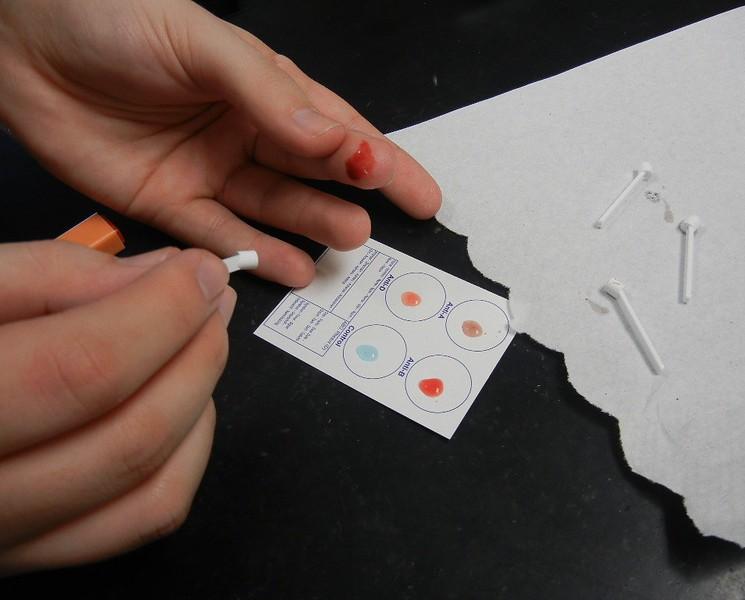People with type A blood are likely more susceptible to COVID-19 infections, because the spike protein of the virus shows an affinity for blood group A cells, according to a new study in Blood.
This is the strongest evidence to date to support the idea that blood types influence who is more likely to contract COVID-19.
Moreover, the study shows the spike protein's affinity for type A cells may be amplified by the Omicron strain of the virus.
25% to 50% increased infection for type A
The study looked at the receptor binding domain (RBD) of SARS-CoV-2, which facilitates host cell engagement. RBD is very similar to galectins, a family of carbohydrate binding proteins that can be studied in a lab setting.
Blood group antigens are carbohydrates, so the authors compared the glycan binding specificity of the SARS-COV-2 RBD with galectins in blood cells from both type A and O. The SARS-CoV-2 virus showed a strong affinity for type A cells. Depending on what virus variant was used, a likelihood of infection increased by 25% to 50% compared to type O cells.
Not only did each RBD recognize blood group A in a glycan array format, the authors explained mutations in variant strains of the virus can be found in regions of the RBD predicted to recognize glycans. Those changes enhanced blood group A binding, the authors said.
Other risk factors more important
These lab findings match clinical observations, which show people with type A blood have demonstrated as much as a 47% increase in likelihood to get infected with COVID-19.
Among a group of several thousand people, some studies suggest that those with blood group A may be 20% more likely to be infected.
"Among a group of several thousand people, some studies suggest that those with blood group A may be 20% more likely to be infected after exposure to SARS-CoV-2 compared with those who have blood group O. But people with blood group O can still contract the virus and may transmit it to others," said Sean R. Stowell, MD, PhD, of Harvard Medical School, in a press release.
Stowell said, though important, blood type does not rank as high as factors such as age and chronic conditions in determining individuals' risk for severe SARS-CoV-2 infection.
"Blood group is one of many variables that influence one's likelihood of becoming infected following exposure to SARS-CoV-2," he said. "Regardless of their blood group, individuals should be fully vaccinated against COVID-19 and should continue to take other preventive measures appropriate to their risk level."





















